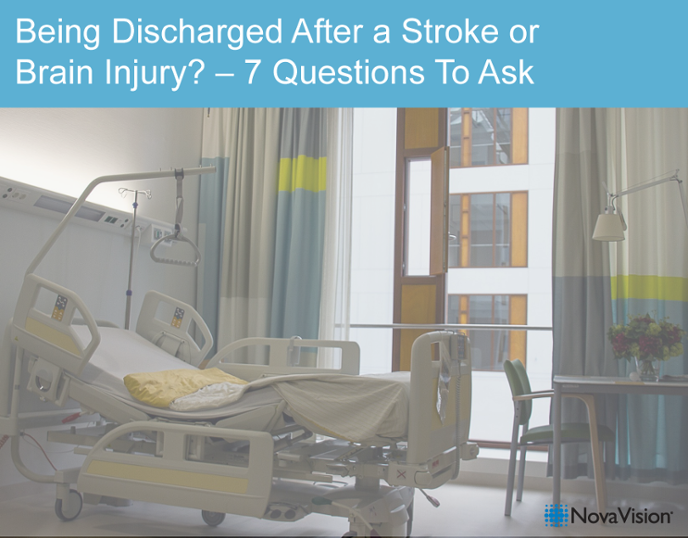
Hospitals provide extensive resources and expertise that enable doctors to rapidly diagnose and treat a wide range of diseases. However, being admitted to a hospital after a stroke or brain injury can be frightening and stressful for the patient and their loved ones.
Even though being discharged from the hospital can be relieving for many, it can also be confusing and overwhelming when deciding what the next step should be. Each hospital has its own discharge policy and assessment process that will determine whether you need more care after you leave the hospital.
In order to make the transition easier, it is important that you and your caregiver be fully involved in the assessment process. The most appropriate person to speak to about your long term goals would usually be your case manager; they will help you asses, plan and coordinate your best options and services to meet your comprehensive health needs.
Jordyn Sims, M.S., CCC-SLP – speech pathologist has put together a list of 7 questions to ask when getting ready for discharge:
- Where am I going? Is it the best fit for MY personal situation and condition? Going home, while of course the major preference for all involved may not always be the best option. It depends on how serious your condition is, as well as what types of support you’ll be able to have at home (check out my post on the Aftermath of Stroke for more details).
- What medications should I plan to take, how often should I take them, and in what manner do they need to be taken? Are there any side effects to look out for?
- What are warning signs that would indicate that I should come back to the hospital?
- What types of therapies should I follow-up on? Speech therapy? Physical therapy? Occupational therapy? Mental health counseling?
- When should I schedule a visit with my doctors? Which doctors do I need to schedule with?
- Do I need any special equipment, like braces or supports? Make sure to check in with an occupational therapist and/or physical therapist if you have any concerns about accessing various parts of your house, such as stairs, bathrooms, kitchen appliances, etc.
- Do you have any suggestions for resources for me? Are there any changes I should think about making to my insurance plan or any community groups I should look into joining?
Continuing your education about medications, side effects, next steps after discharge can significantly reduce the time spent during your discharge and can make the process easier for you and everyone else involved.
It is important to know that you are not alone in your journey to recovery, there are many resources out there for you and your caregivers; American Stroke Association has created a very helpful discharge checklist which can be downloaded here.
If you want to learn more about vision loss after a stroke or brain injury this eBook is full of educational material as well as therapy recovery options, it can be downloaded here.


